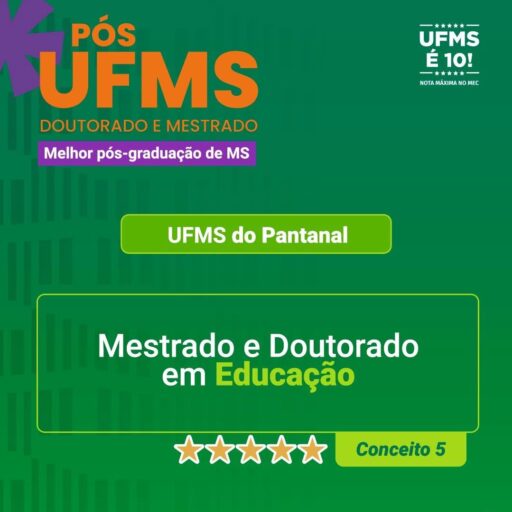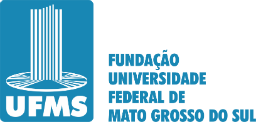DILSON VILALVA ESQUER – AS ESCOLAS DAS ÁGUAS DO PANTANAL SUL-MATO-GROSSENSE: UM ESTUDO SOBRE A CULTURA ESCOLAR RIBEIRINHA
Resumo do Trabalho
A presente dissertação faz parte da Linha de Pesquisa Práticas educativas, formação de professores (as) /educadores (as) em espaços escolares e não escolares, do curso de Mestrado do Programa de Pós-Graduação em Educação (PPGE) da Universidade Federal de Mato Grosso do Sul – Câmpus do Pantanal, área de concentração em Educação Social. Esse estudo está vinculado ao grupo de estudos e pesquisas sobre Formação e Práticas docentes (Forprat). No contato por meio de vivências na docência e na coordenação pedagógica em uma das escolas das águas percebeu-se que há uma diversidade na forma de organização e funcionamento nas escolas das águas, emergindo os seguintes questionamentos: como essas escolas estão organizadas quanto ao tempo, espaço e currículo? Que similaridades e singularidades essas escolas possuem para a configuração de uma cultura escolar ribeirinha? Para buscar responder essas questões, essa pesquisa tem como objetivo geral analisar as similaridades e singularidades das escolas das águas do Pantanal Sul-matogrossense para a configuração de uma cultura escolar ribeirinha. Como objetivos específicos buscou-se: (i) traçar o perfil das escolas das águas com relação a organização do tempo, do espaço e do currículo; (ii) identificar as similaridades dessas escolas e que compõem a cultura escolar ribeirinha. (iii) verificar as singularidades dessas escolas quanto a sua forma de organização. A abordagem deste estudo é qualitativa quanto a natureza e de caráter exploratório-descritivo com relação aos objetivos. Para a produção de dados contou com o levantamento e análise de documentos das escolas das águas disponibilizados pelo Núcleo das Escolas das Águas da Secretaria Municipal de Corumbá. Os achados deste estudo resultam em alguns indícios de prevalência de uma cultura escolar urbana de um lado e, de outro, possibilidades para pensar em uma configuração de cultura escolar ribeirinha, ou própria das águas. Com a realização desse estudo, buscou-se contribuir com a ampliação de estudos sobre a cultura escolar em contextos ribeirinhos, bem como para a proposição de políticas de formação e curriculares direcionadas para as escolas das águas.
Palavras-chave: Escolas ribeirinhas; Tempo escolar; Espaço escolar; Currículo
Abstract do Trabalho
This dissertation is part of the Research Line Educational practices, training of teachers/educators in school and non-school spaces, of the Master’s course of the Postgraduate Program in Education (PPGE) of the Federal University of Mato Grosso Grosso do Sul – Pantanal Campus, concentration area in Social Education. This study is linked to the study and research group on Teaching Training and Practices (Forprat). In the contact through experiences in teaching and in the pedagogical coordination in one of the schools of the waters, it was noticed that there is a diversity in the form of organization and functioning in the schools of the waters, emerging the following questions: how these schools are organized in terms of time, space and curriculum? What similarities and singularities do these schools have for the configuration of a riverside school culture? In order to seek to answer these questions, this research has the general objective of analyzing the similarities and singularities of the schools of the waters of the Pantanal Sul-mato-grossense for the configuration of a riverside school culture. As specific objectives, the following were sought: (i) to outline the profile of the water schools in relation to the organization of time, space and curriculum; (ii) identify the similarities of these schools and that make up the riverside school culture. (iii) verify the singularities of these schools regarding their form of organization. In a qualitative approach in terms of its nature, which is exploratory and descriptive in relation to the objectives, for the production of data it relies on a survey and analysis of documents from the schools of the waters. The findings of this study result in some evidence of the prevalence of an urban culture at school, on the one hand, and on the other, possibilities to think about a configuration of a riverside school culture, or one that belongs to the waters. With this study, we sought to contribute to the expansion of studies on school culture in riverside contexts, as well as to propose training and curriculum policies aimed at water schools.
Keywords: Riverside schools; School time; School space; Curriculum.
dilson

